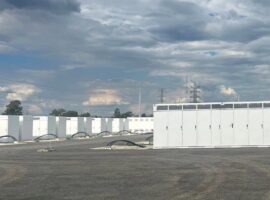The Energy Security Board’s (ESB) National Energy Guarantee (NEG) Final Design document – which ministers are being asked to sign off in a couple of weeks – makes a big claim on electricity bill reductions that it attributes to the NEG.
Is this claim credible?
In round terms, the ESB says that on average over the period from 2020 to 2030 “retail” bills (by which I presume they mean the bills of households and small businesses) will reduce by $550.
This is a reduction of about 30-40% for a typical household. A little under a third of this reduction is attributed to the NEG.
The decrease for bigger energy users will be even larger since the NEG will affect electricity production costs which account for a bigger portion of the bill for big customers.
The ESB also says that the Government’s emission reduction target – 26% reduction on 2005 emissions from electricity by 2030 – will be all but achieved (i.e. 24% below 2005 emissions) around the time the policy starts in 2020/21.
And the Government’s target is that electricity emissions will then reduce by 2% (0.2% per year) over the 10 years.
The ESB also now predicts about 8,000MW of additional rooftop solar PV, even if the NEG is not implemented. This alone will account for about four times as much emission reduction as the Government wishes to see over the decade.
Bringing the pieces together, what we have is a policy whose proponent tells us the policy’s objective will be met, and then some, if the policy did not exist. And yet the proponent also tells us the policy will reduce electricity bills by a large amount.
This does not seem credible to me. How can a policy that is designed to do something that will happen anyway causes prices to be any lower than they would be anyway?
Is the ESB saying that relative to business as usual the NEG will raise emissions, and as a consequence electricity prices would be lower than they otherwise would be ?
This question should be put to the ESB and those customers and peak bodies – BHP, BlueScope Steel, the Energy Users Association, the Cement Industry Federation, the National Farmers Federation – that think the NEG makes things better.
Bruce Mountain is director, Victoria Energy Policy Centre.







